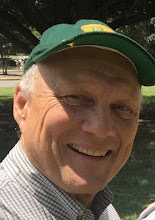First Baptist New
March 28, 2008
The great storm threw our congregations together. We were stunned, stumbling through the debris, overwhelmed by the chaos. We got our legs under us, though, and steadied each other in the damp darkness.
We donned the masks and boots and plunged together into the wreckage with our big snow shovels and wobbly wheelbarrows. We discovered that everyone is the same color in a hazmat suit.
We scrambled to high ground and set up camp. We labored to make sense of life, to discover old friends, to develop new ones.
We worked together, ate together, cried together, laughed together, prayed together, and learned to be comfortable together.
During those months that grew into years, we came to care for one another, respect each other, and value our growing friendship. We learned to really love each other.
The era of sharing the same church building must come to an end. The guest-who-has-become-family is moving on and moving out now, going back home to their rebuilt facilities in the 8th Ward. That is as it should be, I know, but I lament it nonetheless.
I have grown accustomed to their life and laughter, their proximity physically and spiritually. My Sunday morning routine, altered by hundreds of new worshipers filling up the building very early, includes handshakes and greetings from these new brothers and sisters of mine. Every Wednesday evening we talk and walk together. Throughout these weeks we have met intentionally and accidentally, and every meeting has strengthened the tie that binds.
I will miss them when they are gone—no doubt.
From Musician’s Village to New Orleans Mission to City Hall, we have walked these streets and halls together since Katrina purged our dirt and dreams. The months of sharing facilities have led into many shared ministries. The women of our churches work together in ministry and Bible study several times a week. Our men pray together weekly and study the Scriptures together. Health and recreation ministries have been combined for these years along with
Every week I observe and hear from someone about the tremendous dynamics unleashed through the multiple interactions of our congregations,
The lessons of this crisis mode, with its work-together, live-together necessity, are earth-shaking. They should not pass from our minds and hearts. These new truths that have surfaced with the ebbing tide must bring permanent change. Let’s not waste this storm by regressing back to who we used to be.
The hurricane forced us to gather on the high ground, the unflooded areas. It removed the distance between us. For some displaced groups that has caused multiple exchanges of gunfire over disputed turf. But for many others it has meant turning the “neutral ground” into “common ground” and “higher ground.” The higher ground in our city is the place where we work together and learn to love and respect each other.
This is our last Sunday to share worship facilities with our new friends. We have made a mutual pledge that it will not be the end of our partnership in ministry in this city. We have experienced a glimpse of what it means to love one another across the boundaries that usually divide us. We will not back away from this divine call.





